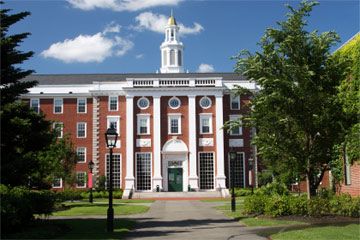In 2008, Barack Obama became the first African-American to be elected as president of the United States. His election broke a long-standing racial barrier in American politics. Something you may not have known was he was also a lawyer. That's not something new.
President Obama is the 25th lawyer to go on to be Commander in Chief, but only the second (the other being Rutherford B. Hayes) to graduate from Harvard Law School [source: Slater].
Advertisement
Not all of the 25 U.S. lawyer-presidents graduated from law school. Several were self -taught or learned from a mentor before actually practicing law. Two, Bill Clinton and Gerald Ford, went to Yale Law School -- tying for the most with Harvard. But politics isn't the only place to find former lawyers.
Some of the most influential people in many professions were once lawyers. Mohandas Gandhi studied in England to become a barrister and passed the bar exam before returning to India. American novelist John Grisham, whose works include "The Client" and "A Time to Kill," is a retired attorney and former talk show host, and Geraldo Rivera, current host of the Fox News show "Geraldo At Large," was an attorney before he became a journalist. Britons are familiar with Cherie Blair, wife of former Prime Minister Tony Blair, who is an English barrister, and don't forget current U.S. Secretary of State Hillary Clinton. The former First Lady was an advocate attorney before she arrived at the White House in 1992.
As you can see, attorneys often enjoy opportunities most of us can only dream of. You don't necessarily have to become a lawyer to become president, but it doesn't hurt. Attorneys also have a reputation for being well-paid. An entry-level attorney can make anywhere from $55,000 to $100,000 annually depending on location [source: Salary.com]. Some earn even more, as you'll see later in this article. So why don't we have more lawyers?
The answers vary, but one hurdle may be law school. In addition to earning a bachelor's undergraduate degree, you'll have to spend more time and money on your education if you want to become a lawyer. If that sounds discouraging, the recent trend of accelerated law school programs may be something you want to consider.
Advertisement


